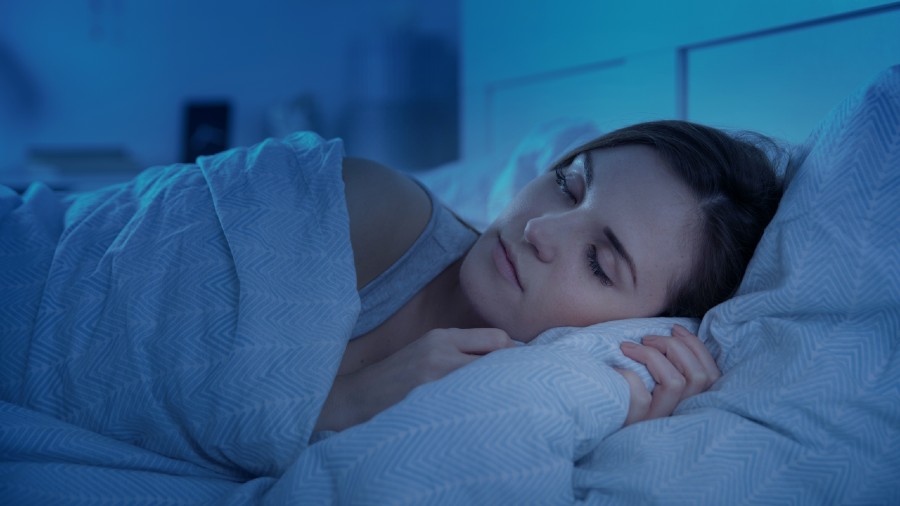For many people, sleeping poorly was the norm before the pandemic. Then the stress, anxiety and disruptions made our nightly slumber worse, giving rise to terms such as “coronasomnia” to describe the surge in sleep disturbances last year. But recently, sleep experts noticed something that astonished them: More than a year into the pandemic, our sleep only continued to deteriorate.
In a survey of thousands of adults last summer, the American Academy of Sleep Medicine found that 20 per cent of Americans said they had trouble sleeping because of the pandemic. But when the academy repeated its survey 10 months later, in March, those numbers rose drastically. Roughly 60 per cent of people said they struggled with pandemic-related insomnia, and nearly half reported that the quality of their sleep had diminished.
“A lot of people thought that our sleep should be getting better because we can see the light at the end of the tunnel — but it’s worse now than it was last year,” said Dr Fariha Abbasi-Feinberg, a sleep medicine specialist and spokesperson for the American Academy of Sleep Medicine.
So what can we do to get our disrupted sleep back on track? Read on.
The 25-minute rule
If you get into bed and can’t fall asleep after 25 minutes, or you wake up at night and can’t get back to sleep after 25 minutes, then don’t stay in bed. Get up and do a quiet activity that calms your mind and makes you drowsy. “Just get up, don’t fret,” said Matthew Walker, a professor of neuroscience and psychology at the University of California, Berkeley. “If you stay in bed awake for long periods of time, your brain thinks, ‘Every time I get into bed, this is the place where I should be awake.’ And you need to break that association.”
Screens in the bedroom
We all know that we shouldn’t look at bright screens late at night because the blue light they emit tells your brain that it’s time to be awake. But many of us do it anyway. So follow this guideline: If you are going to use your phone or device after your bedtime, then use it only while standing. When you feel like sitting or lying down, you have to put the device away.
Wake up at the same time
Our bodies follow a daily circadian rhythm, and waking up at different times throws it out of whack. It is best to keep your wake-up time consistent. Don’t sleep in, even on weekends. You may not feel great for a few days, but you’re reinforcing that when you’re in bed, you sleep.” The same goes for your bedtime: Keep it consistent. The less you deviate, the better you’ll sleep.
Get sunlight
If you don’t commute to work, it can be easy to spend your entire mornings inside. But exposure to sunlight serves an important purpose: It shuts down the release of melatonin, a hormone that promotes sleep. “Most brain fog in the morning is caused by continued melatonin production,” said Michael Breus, a clinical psychologist and author of The Power of When. “When sunlight hits your eye, it sends a signal to your brain to tell the melatonin faucet to turn off.” Aim to get at least 15 minutes of sunlight first thing every morning.
Exercise
The pandemic led people to cut back on physical activity. But exercise is the easiest way to improve sleep, Breus said. “Sleep is recovery,” he added. “If you don’t have anything to recover from, your sleep isn’t going to be that great.” According to the Sleep Foundation, US, people with chronic insomnia can fall asleep about 13 minutes faster and gain up to 20 extra minutes of sleep per night by starting an exercise routine. One caveat: End your exercise at least four hours before bedtime; otherwise, it could interfere with your sleep by raising your core body temperature, Breus said.
Cut off caffeine at 2pm
Caffeine has a half-life of 6-8 hours and a quarter-life of about 12 hours. That means that if you drink coffee at 4pm, “you’ll still have a quarter of the caffeine floating around in your brain at 4am,” Breus said. Avoiding caffeine in the evening is a no-brainer. But, ideally, you should steer clear of caffeine after 2pm so your body has enough time to metabolise and clear most of it from your system.
The two-drink rule
If you drink alcohol, limit yourself to two drinks in the evening and stop at least three hours before bed. Alternate each drink with a glass of water. Because alcohol is a sedative, some people drink a nightcap to help them fall asleep faster. But alcohol suppresses REM sleep and causes sleep disruptions, which will worsen the overall quality of your sleep. “The closer you drink to your bedtime, the worse your sleep is going to be,” Breus said.
NYTNS











